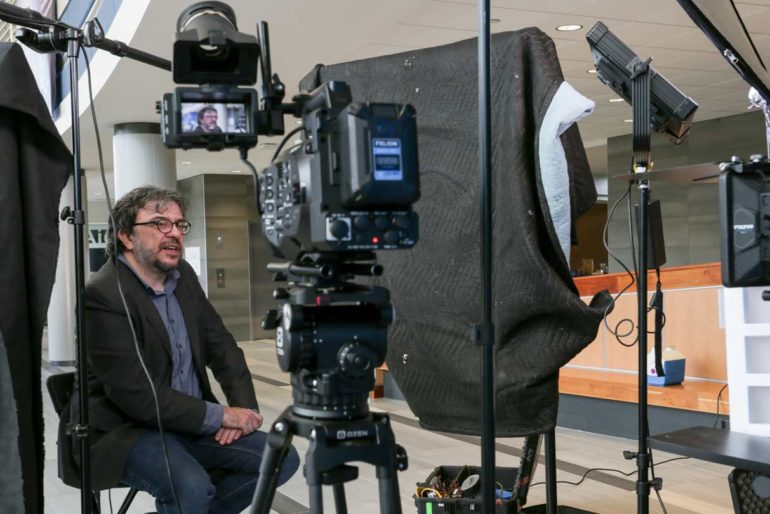University of Alabama in Huntsville (UAH) research that identified 125 naturally occurring compounds with computational potential for efficacy against the COVID-19 virus was part of a keynote speech by Antonio Neri, president and CEO of Hewlett Packard Enterprise (HPE), at the HPE Discover event on Tuesday, June 23.
Neri cited the research collaboration between HPE and Dr. Jerome Baudry’s team in UAH’s Baudry Lab.
The UAH team used donated time on the HPE Sentinel supercomputer to assess the potential treatment efficacy of naturally occurring compounds against the proteins made by COVID-19 in the first such research using a supercomputer to speed results. Dr. Baudry (pronounced Bō-dre) is a molecular biophysicist and the Mrs. Pei-Ling Chan Chair in the Department of Biological Sciences.
In his keynote, Neri told over 100,000 registrants from the computing, scientific and business worlds that the HPE collaboration with Dr. Baudry “allowed his research team to deliver results in weeks versus months or years.”
Concurrent with Neri’s keynote, a seven minute and 17 second video interview with Dr. Baudry that was conducted on the UAH campus on May 23 was presented on demand to participants.
In the first test batch 50,000 naturally occurring compounds were tested for efficacy against the proteins made by COVID-19. The Baudry Lab still has over 350,000 naturally occurring compounds to test in future batches.
Promising compounds will undergo a computational technique called pharmacophore analysis to find what the chemicals have in common and flag chemical features important for future research.
After that, the next phase for the compounds is in vitro testing by a partner laboratory that will use live virus and live cells. Those chemical molecules found most efficacious will form the basis for future drug research and development processes that include testing for efficacy, tolerance and adverse effects in human trials. That process might also include chemical modifications to make the drug more efficient, better tolerated or both.
Located in UAH’s Shelby Center for Science and Technology, the lab is searching for potential precursors to drugs that will help combat the global pandemic.

